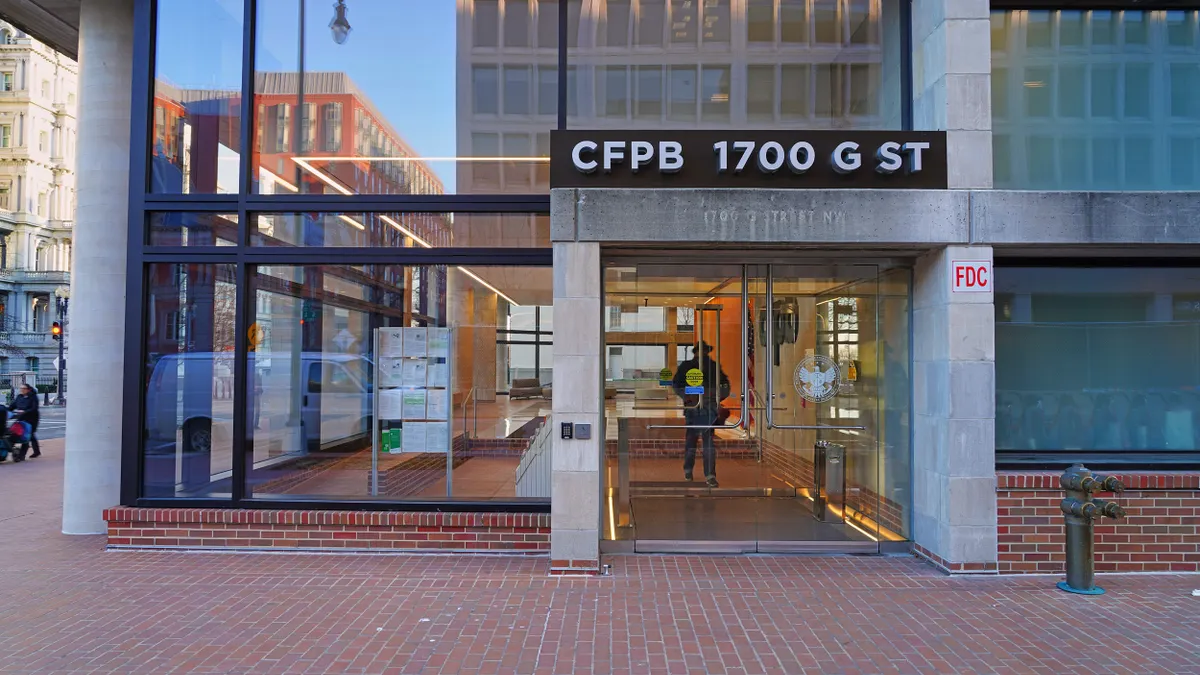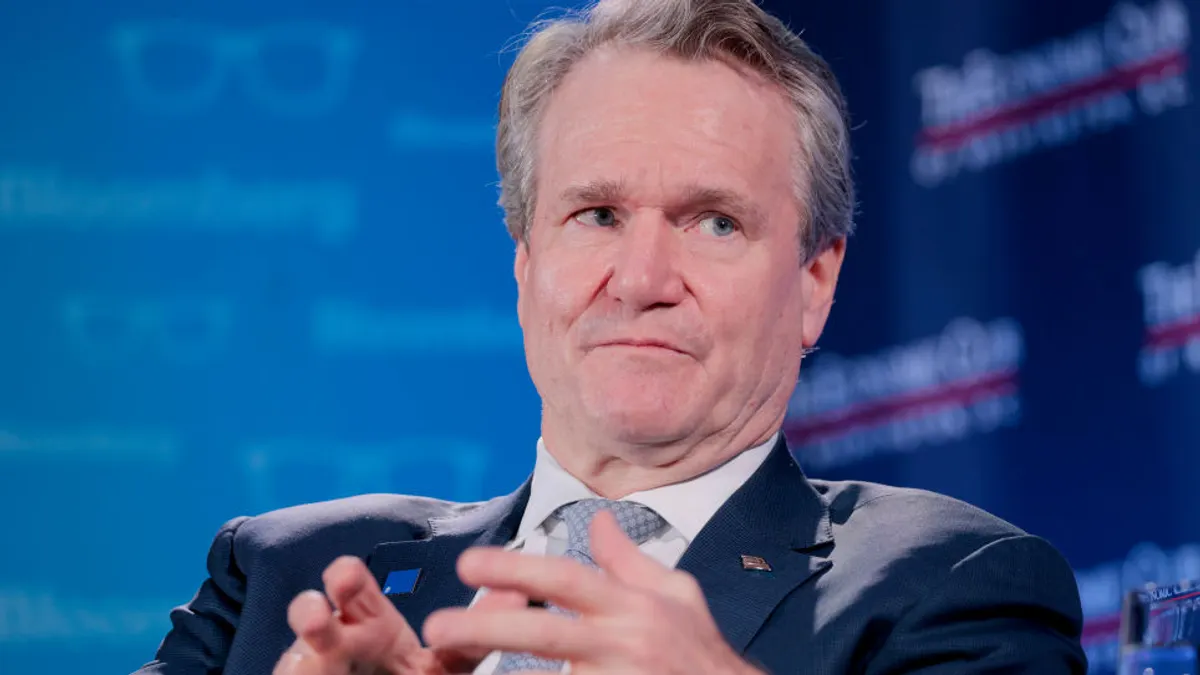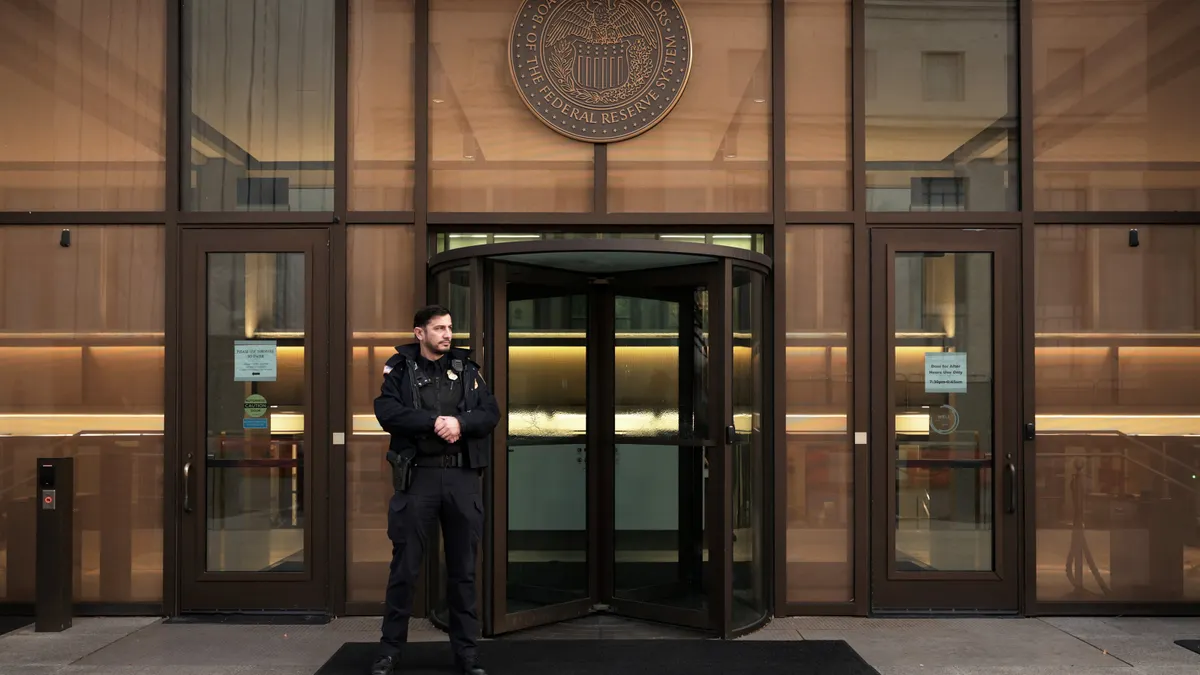A three-judge panel at the D.C. Circuit Court of Appeals on Friday vacated a preliminary injunction that prevented Trump administration officials from firing the vast majority of Consumer Financial Protection Bureau employees.
The ruling won’t take effect for seven days, however, giving plaintiffs time to file an appeal or petition for a rehearing by the full D.C. Circuit.
The decision was not unanimous. The panel’s two Trump appointees – Judges Gregory Katsas and Neomi Rao – ruled that CFPB Acting Director Russ Vought’s efforts to reduce the bureau’s workforce did not constitute a final agency action and could not be reviewed by courts under the Administrative Procedure Act.
"This challenge is not viable. It cannot be brought under the APA because that statute provides a cause of action to challenge discrete, final agency action, which claims here do not target," Katsas wrote. "We hold that the district court lacked jurisdiction to consider the claims predicated on loss of employment, which must proceed through the specialized-review scheme established in the Civil Service Reform Act."
In a dissent, Judge Cornelia T.L. Pillard, an Obama appointee, wrote that Katsas and Rao’s “constricted view of our statutory and equitable power contravenes statutes, precedent and basic principles of our constitutional government."
"Neither the government nor the majority seriously disputes that, if we accept the district court's findings of fact, Defendants' actions violated both the CFPB's organic statute and the constitutional separation of powers," Pillard wrote Friday. “The notion that courts are powerless to prevent the President from abolishing the agencies of the federal government that he was elected to lead cannot be reconciled with either the constitutional separation of powers or our nation’s commitment to a government of laws.”
The ruling sparked varied reactions.
"If this decision is allowed to stand, it will shift the balance of power toward corporations at the expense of American families' financial security," Jennifer Bennett, a Gupta Wessler attorney representing the plaintiffs in the case, told American Banker in an emailed statement. "Without the full force of the Consumer Financial Protection Bureau — an agency Congress created specifically to protect consumers — millions will lose critical safeguards against predatory financial practices."
Attorney General Pam Bondi, however, saw the decision as “another victory for President Trump!”
“The DC Circuit sided with my [Justice Department] attorneys in our effort to dismantle the CFPB and rein in crippling Obama-era regulations,” Bondi wrote Friday on X. “The CFPB is now free to right-size itself in accordance with the law to best serve the American people.”
Sen. Elizabeth Warren, D-MA, said the decision “willfully ignores the Trump Administration’s unprecedented and lawless attempt to destroy an agency created by Congress.”
Warren, who is often cited as an architect of the CFPB, called the evidence against the administration “damning,” adding that Katsas and Rao “hid behind technicalities to let them off the hook.”
Lauren Saunders, director of federal advocacy at the National Consumer Law Center, called Friday’s decision a “deeply disturbing development in the ongoing campaign to shutter the CFPB.”
Judge Amy Berman Jackson of the U.S. District Court for the District of Columbia, issued a temporary injunction Feb. 14, after the National Treasury Employees Union warned that Vought, who had taken charge of the CFPB a week earlier, planned to initiate a mass layoff that would terminate 95% of positions within the agency, leaving a workforce of little more than 200. The judge made the injunction preliminary after considering days of testimony and communications detailing the extent of the plans.
On appeal, the D.C. Circuit rolled back parts of Berman Jackson’s injunction but allowed CFPB leaders to terminate employees who have been “determined, after an individualized assessment, to be unnecessary to the performance of [the] defendants’ statutory duties.”
The CFPB pivoted, recasting its mission and shifting its focus away from nonbanks. The next day, the agency moved again to eliminate roughly 1,500 positions it argued did not fit the revised mission. But Berman Jackson barred that effort. The D.C. Circuit then backed the injunction (though that, too, was not unanimous).
Friday’s decision breaks from that.
Apart from the jurisdictional and “final agency action” issue, plaintiffs failed to raise adequate constitutional questions to warrant review by the panel, Katsas said.
Pillard, however, argued that the decision may contradict Congress’ intention for the CFPB.
“Congress created the CFPB, assigned it important missions and powers, and subjected its decisions to the strong presumption of judicial review that applies as a matter of course to the final actions of federal agencies,” Pillard wrote. “It is untenable to hold that same Congress meant the agency’s continued existence to be a matter of unilateral and unexplained presidential edict.
“It is emphatically not within the discretion of the President or his appointees to decide that the country would benefit most if there were no Bureau at all," the judge added.




















